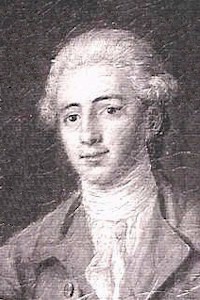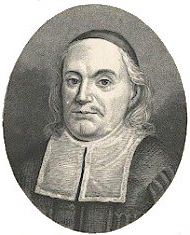Related Research Articles
A doxology is a short hymn of praises to God in various forms of Christian worship, often added to the end of canticles, psalms, and hymns. The tradition derives from a similar practice in the Jewish synagogue, where some version of the Kaddish serves to terminate each section of the service.

"Love Divine, All Loves Excelling" is a Christian hymn by Charles Wesley on Christian perfection. Judging by general repute, it is among Wesley's finest. Judging by its distribution, it is also among his most successful.

"O for a Thousand Tongues to Sing" is a Christian hymn written by Charles Wesley. The hymn was placed first in John Wesley's A Collection of Hymns for the People Called Methodists published in 1780. It was the first hymn in every (Wesleyan) Methodist hymnal from that time until the publication of Hymns and Psalms in 1983.

"Christ the Lord Is Risen Today" is a Christian hymn associated with Easter. Most of the stanzas were written by Charles Wesley, and the hymn appeared under the title "Hymn for Easter Day" in Hymns and Sacred Poems by Charles and John Wesley in 1739. The hymn eventually became well known for the "Alleluia" sung as a melisma after each line, which was added by an unknown author, probably to fit the commonly used hymn tune, "Easter Hymn". It remains a traditional processional hymn on Easter Sunday.
Decisions concerning the conduct of public worship in the Church of Scotland are entirely at the discretion of the parish minister. As a result, a wide variety of musical resources are used. However, at various times in its history, the General Assembly has commissioned volumes of psalms and hymns for use by congregations.

"Onward, Christian Soldiers" is a 19th-century English hymn. The words were written by Sabine Baring-Gould in 1865, and the music was composed by Arthur Sullivan in 1871. Sullivan named the tune "St Gertrude," after the wife of his friend Ernest Clay Ker Seymer, at whose country home he composed the tune. The Salvation Army adopted the hymn as its favoured processional. The piece became Sullivan's most popular hymn. The hymn's theme is taken from references in the New Testament to the Christian being a soldier for Christ, for example II Timothy 2:3 (KJV): "Thou therefore endure hardness, as a good soldier of Jesus Christ."

"All Hail the Power of Jesus' Name" is a Christian hymn.

The United Methodist Hymnal is the hymnal used by The United Methodist Church. It was first published in 1989 as the first hymnal for The United Methodist Church after the 1968 merger of The Methodist Church with The Evangelical United Brethren Church. The 960-page hymnal is noted for many changes that were made in the lyrics of certain hymns, so as to modernize the hymnal.

"Soldiers of Christ, Arise" is an 18th-century English hymn. The words were written by Charles Wesley (1707–1788), and the first line refers to the armour of God in Ephesians 6:10–18.

"Come, Thou Long Expected Jesus" is a 1744 Advent and Christmas carol common in Protestant hymnals. The text was written by Charles Wesley. It is performed to one of several tunes, including "Stuttgart", "Hyfrydol", and "Cross of Jesus". The hymn is considered an enduring classic in Christian hymnody.
The God of Abraham Praise is a Christian adaptation of the well known Jewish hymn "Yigdal", loosely translated and Christianised by the evangelist Thomas Olivers after a visit to the Great Synagogue of London in 1770. It was first published in 1772. The title of the hymn was based on a verse in the Book of Exodus: "I am the God of thy Father, the God of Abraham".

"All Glory, Laud and Honour" is an English translation by the Anglican clergyman John Mason Neale of the Latin hymn "Gloria, laus et honor", which was written by Theodulf of Orléans in 820. It is a Palm Sunday hymn, based on Matthew 21:1–11 and the occasion of Christ's triumphal entry into Jerusalem.

"And Can It Be That I Should Gain?" is a Christian hymn written by Charles Wesley in 1738 to celebrate his conversion, which he regarded as having taken place on 21 May of that year. The hymn celebrates personal salvation through the death and resurrection of Jesus, and is one of the most popular Methodist hymns today.
"Praise to the Living God" is an American Judeo-Christian hymn written in 1884 by Max Landsberg and Newton Mann. It was revised in 1910 by William C. Gannett.
"Good Christians All, Rejoice and Sing", originally titled "Good Christian Men, Rejoice", is an English Christian hymn written by Cyril Alington. It was first published in 1931 and is mostly used as an Easter hymn.

"Ich hab in Gottes Herz und Sinn" is a Christian hymn with a text by Paul Gerhardt in twelve stanzas is sung to the melody of "Was mein Gott will, das g'scheh allzeit". The theme of the hymn is faith in God and the submission to his will.
"Ermuntre dich, mein schwacher Geist" is a German Christmas carol with lyrics by Johann Rist and a melody by Johann Schop, first published in 1641. Historically it was contained in Protestant hymnals, but the current one, Evangelisches Gesangbuch, uses only three of its stanzas, the ninth, the second and the twelfth, titled "Brich an, du schönes Morgenlicht". This stanza was used by Johann Sebastian Bach as a chorale in Part II of his 1734 Christmas Oratorio.

"Sun of Unclouded Righteousness" is a little-known 1758 Christian hymn written by Charles Wesley, the brother of John Wesley, the founder of Methodism. It was written as an intercessory hymn praying for the salvation of Muslims and calls for their conversion to Christianity. It had fallen out of use by around 1880.

"O Jesu Christe, wahres Licht" is a Lutheran hymn by the German Baroque poet, Lutheran minister and hymn-writer Johann Heermann. The text was first published in 1630 during the Thirty Years' War. It is a prayer for enlightenment of those who are ignorant, and of those who turned away. It was associated with a melody from Nürnberg, dating to 1676. The hymn is part of modern German hymnals, both Protestant and Catholic. It was translated to English as "O Christ, our true and only light".
References
- 1 2 "The Summons". Hymnary.org. Retrieved 2014-05-13.
- 1 2 "History of Hymns | The Summons". GBOD. Retrieved 2014-05-13.
- ↑ "All Instances, The Summons". Hymnary.org. Retrieved 2014-05-13.
- ↑ "Glory to God: the Presbyterian Hymnal". Hymnary.org. Retrieved 2014-05-30.
- 1 2 Vroege, David A. "Songs from Iona". Reformed Worship. Retrieved 2014-05-13.
- ↑ "Where can we find you, Lord Jesus our Master?". Methodist Church of Great Britain. Retrieved 2014-06-09.
- ↑ McIntyre, Eva (2011). A Quiet Mind: Uniting Body, Mind and Emotions in Christian Spirituality. John Hunt Publishing. p. 26. ISBN 978-1780990057.
- ↑ Cuthbertson, Kenneth (2013). The Last Presbyterian?: Remembering the Faith of My Forebears. Wipf and Stock Publishers. p. 95. ISBN 978-1620328705.
- ↑ Sledge, Tim (2008). Get a Life!: Life Goals for Young People. Church House Publishing. p. 46. ISBN 978-1620328705.
- ↑ "Special service to mark 20 years of women's ministry". Lancashire Evening Post. Retrieved 2014-06-09.